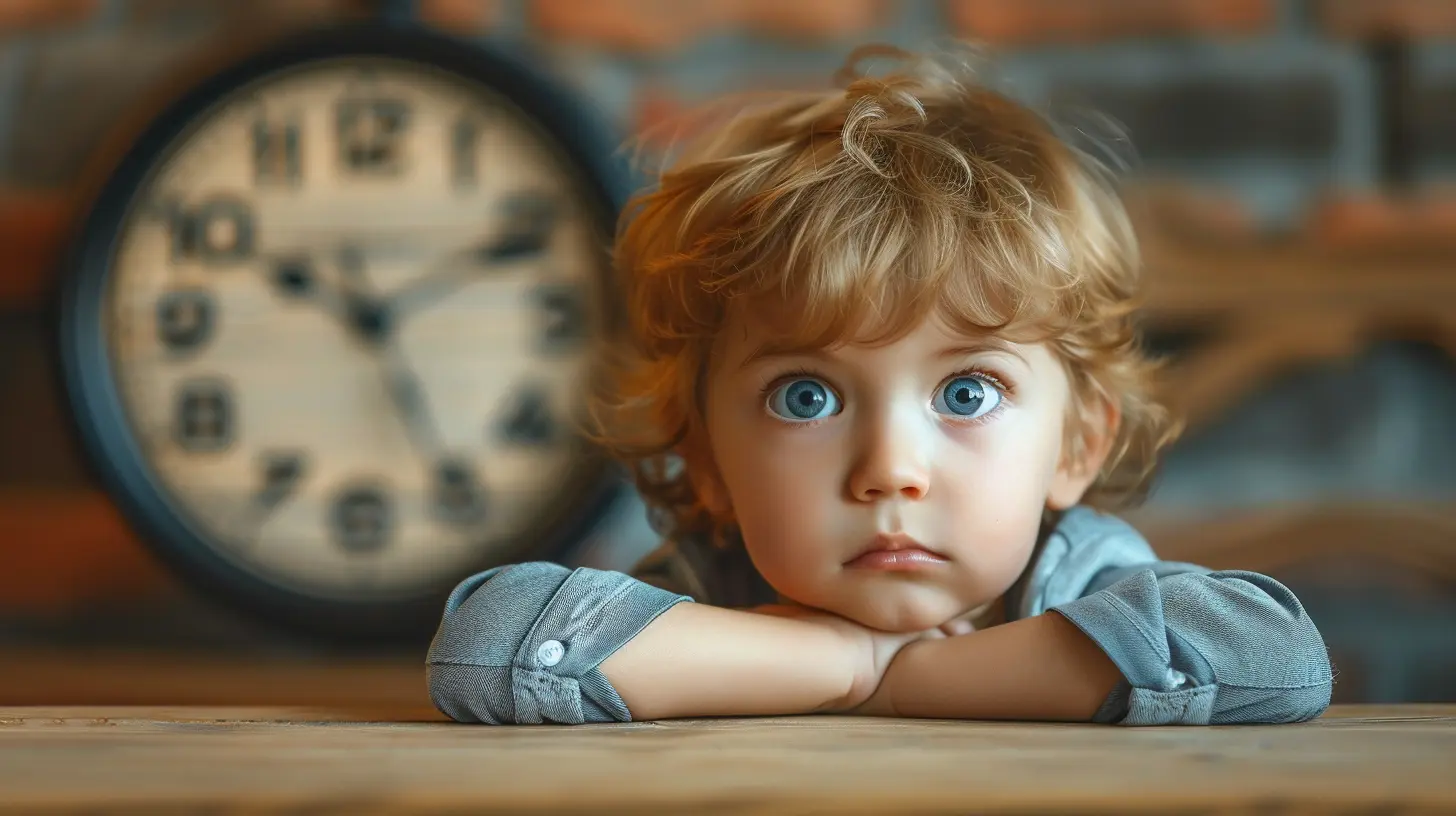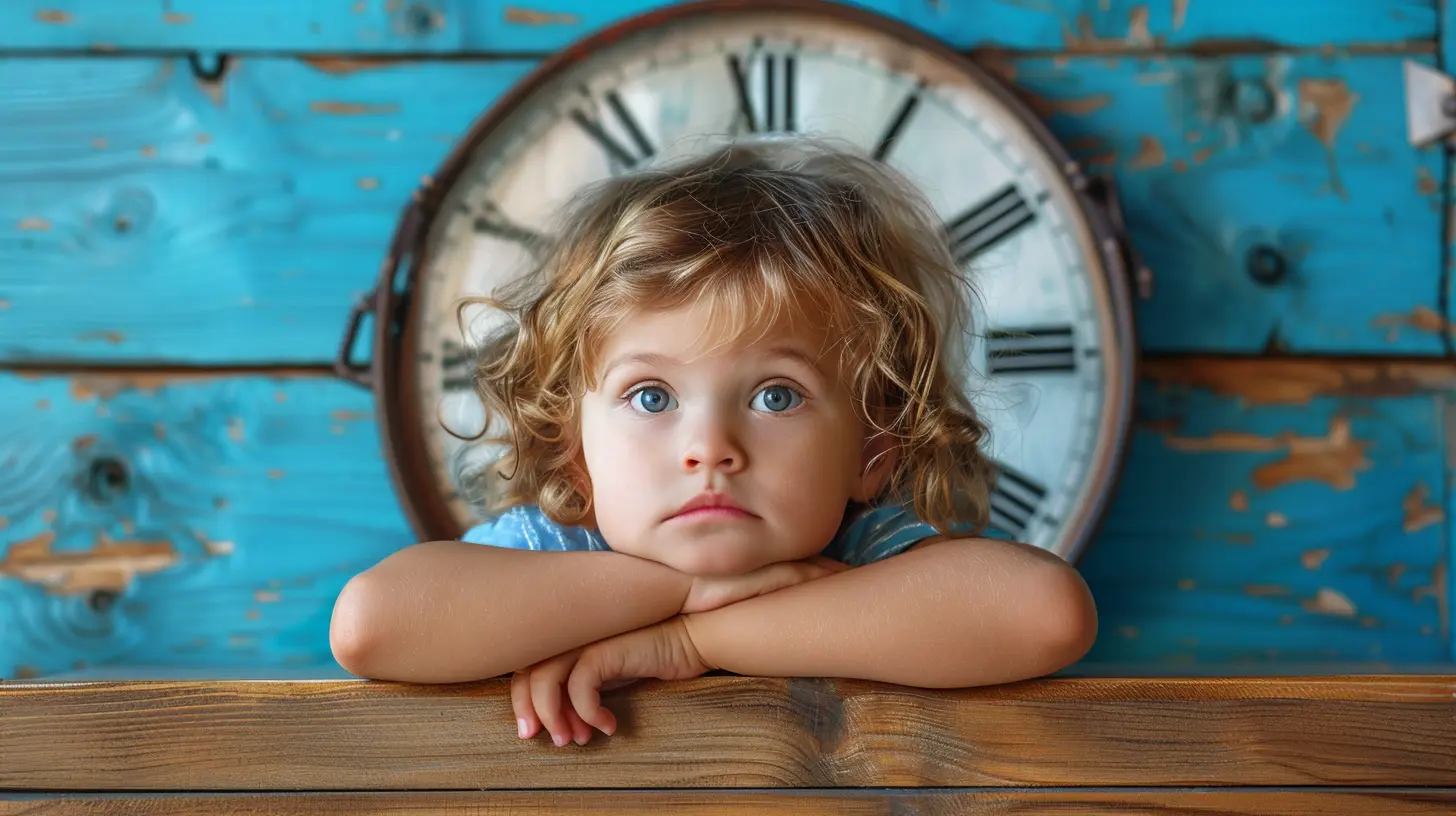Toddler Development: When Should You Worry About Delays?
15 June 2025
Watching your little one grow and learn new things is one of the most exciting parts of parenting. From their first steps to their first words, every milestone feels like a big achievement. But what if your toddler isn't hitting those milestones on time? Should you be worried?
Every child develops at their own pace, but there are certain red flags that may indicate a delay. In this guide, we'll break down toddler development, the signs of delay, and when you should seek professional advice. 
Understanding Toddler Development
Toddlers grow and change fast between the ages of 1 and 3. During this time, they develop essential skills in four main areas:1. Speech and Language: Babbling turns into words, and eventually short sentences.
2. Motor Skills: From crawling to walking and running.
3. Social and Emotional Development: Learning to interact, express feelings, and form bonds.
4. Cognitive Skills: Problem-solving, memory, and basic reasoning.
Each toddler reaches these milestones at different times, but being significantly behind in one or more areas may be a sign of a developmental delay. 
Common Developmental Milestones in Toddlers
12-18 Months
- Says a few simple words like "mama" or "dada."- Walks with or without help.
- Points to objects when named.
- Shows affection with hugs or kisses.
18-24 Months
- Uses at least 10-20 words.- Runs or climbs on furniture.
- Starts using simple two-word phrases like "more juice."
- Begins playing with others, though mostly side by side (parallel play).
2-3 Years
- Forms short sentences (3-4 words).- Jumps, kicks a ball, and climbs stairs.
- Starts engaging in pretend play.
- Follows simple instructions.
If your toddler is not meeting these types of milestones, it may be time to pay closer attention. 
When to Worry About Developmental Delays
Not all delays are cause for concern—some kids just take a little longer to develop certain skills. However, there are some red flags you shouldn't ignore.Speech and Language Delays
- By 18 months, no single words have developed.- By 2 years, they aren't combining two words.
- Difficulty understanding simple commands.
- Loss of previously acquired language skills.
Motor Skill Delays
- By 18 months, not walking or struggling with balance.- By 2 years, not being able to kick a ball or climb stairs.
- Stiff or overly floppy muscles.
Social and Emotional Development Delays
- By 12 months, no interest in people or lack of eye contact.- By 2 years, not engaging in pretend play or showing little interest in interacting with others.
- Extreme difficulty managing emotions beyond typical tantrums.
Cognitive Delays
- Trouble solving simple problems (like finding a hidden toy).- By 2 years, not following simple instructions.
- No curiosity about surroundings or new experiences.
If your child shows multiple signs of delay, it might be a good idea to consult a professional. 
Possible Causes of Developmental Delays
Several factors can contribute to delays in a toddler’s development. Some of these include:- Premature birth: Babies born early may take longer to reach milestones.
- Hearing or vision problems: If a child struggles to hear or see, their development can be affected.
- Autism spectrum disorder (ASD): Difficulty with communication and social interaction is a key trait of autism.
- Genetic conditions: Some disorders, like Down syndrome, naturally affect developmental timing.
- Environmental factors: Lack of stimulation, poor nutrition, or exposure to toxins can slow development.
Understanding the root cause can help in finding the right approach to support your child.
What to Do If You're Concerned
If you think your toddler may have a developmental delay, don't panic. Here are some steps you can take:1. Talk to Your Pediatrician
Your child’s doctor can assess their development and recommend next steps. Be prepared to share your concerns, note any missing milestones, and ask for a developmental screening if necessary.2. Seek Early Intervention Services
Early intervention programs can provide therapy and support tailored to your child's needs. The earlier intervention starts, the better the outcomes.3. Encourage Development at Home
- Talk and read: Regular conversations help with language development.- Play together: Simple games like peek-a-boo or puzzles boost cognitive and social skills.
- Provide a stimulating environment: Encourage exploration and motor activities, like climbing, dancing, or drawing.
4. Be Patient and Supportive
Every child grows at their own pace. While early help is crucial, stressing too much can be counterproductive. Celebrate small wins and keep encouraging progress.When Delays May Be Nothing to Worry About
Not every late walker or talker has a serious problem. Some children may just develop at a slower pace yet catch up with their peers later. For example:- A 15-month-old who isn't walking but shows other progress (pulling up, cruising) may just need more time.
- A late talker who understands words well but doesn't speak much might just be a quiet child.
- A toddler who prefers independent play but interacts when necessary may just have an introverted personality.
If there's steady progress, even if slow, it's usually not a major concern.
Final Thoughts
Parenting comes with a lot of worries, and toddler development is often high on that list. While it's important to keep an eye on milestones, remember that every child is different. Developmental delays don’t always mean something serious, but if you have concerns, trust your instincts and talk to your pediatrician.Early detection and support can make a world of difference, helping your child reach their full potential. The best thing you can do as a parent is to provide a loving, engaging, and supportive environment for them to thrive.
all images in this post were generated using AI tools
Category:
Parenting ToddlersAuthor:

Zelda Gill
Discussion
rate this article
2 comments
Zoey McCartney
It's crucial to balance awareness of developmental milestones with patience; every child progresses uniquely. Consult professionals if genuine concerns arise.
June 22, 2025 at 4:38 AM

Zelda Gill
Thank you for the insight! Balancing awareness and patience is key, and seeking professional guidance can help address concerns effectively.
Liora Edwards
Every child develops at their own pace; trust your instincts but seek guidance if concerns arise.
June 16, 2025 at 3:28 AM

Zelda Gill
Thank you for your insightful comment! It’s crucial to balance trusting instincts with seeking professional advice when needed. Every child's journey is unique, and being proactive can make a difference.


